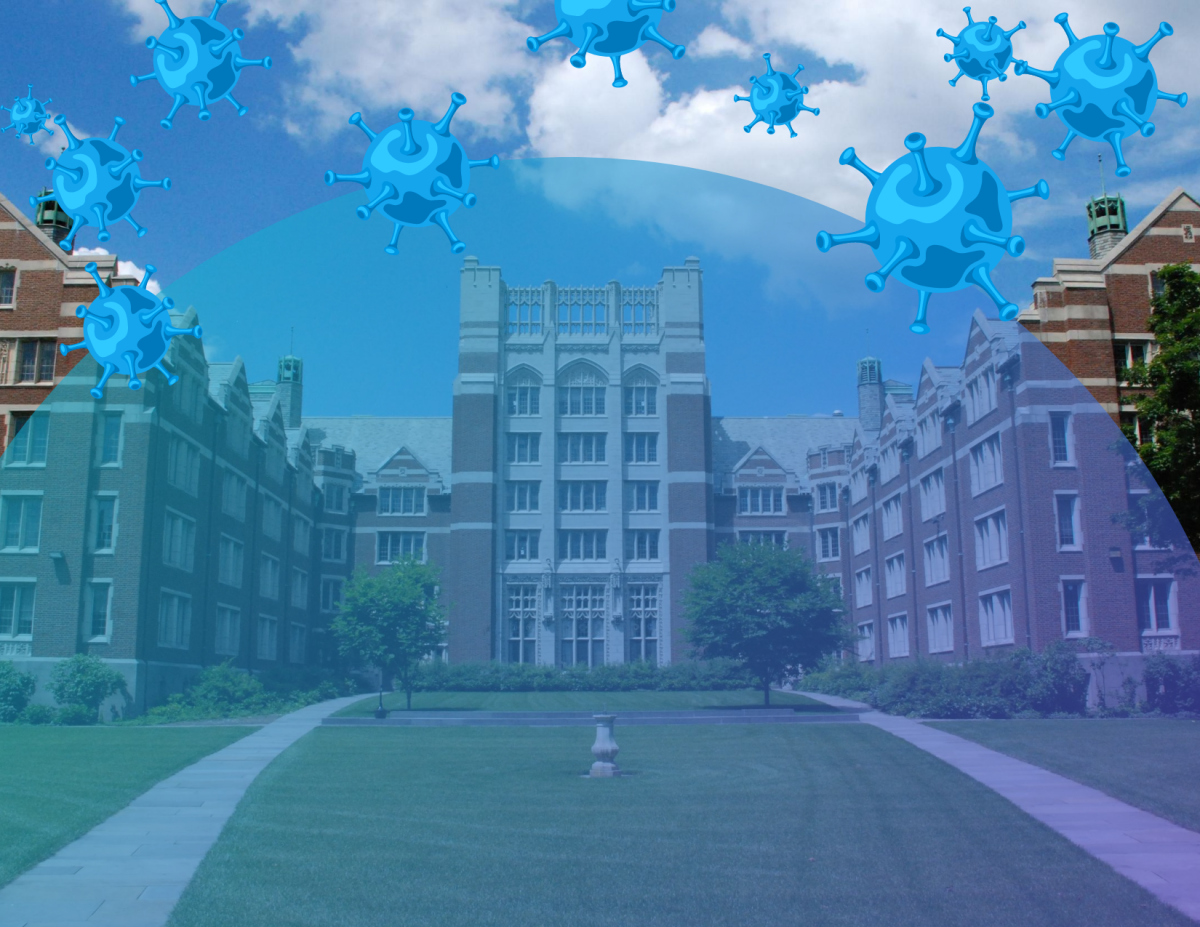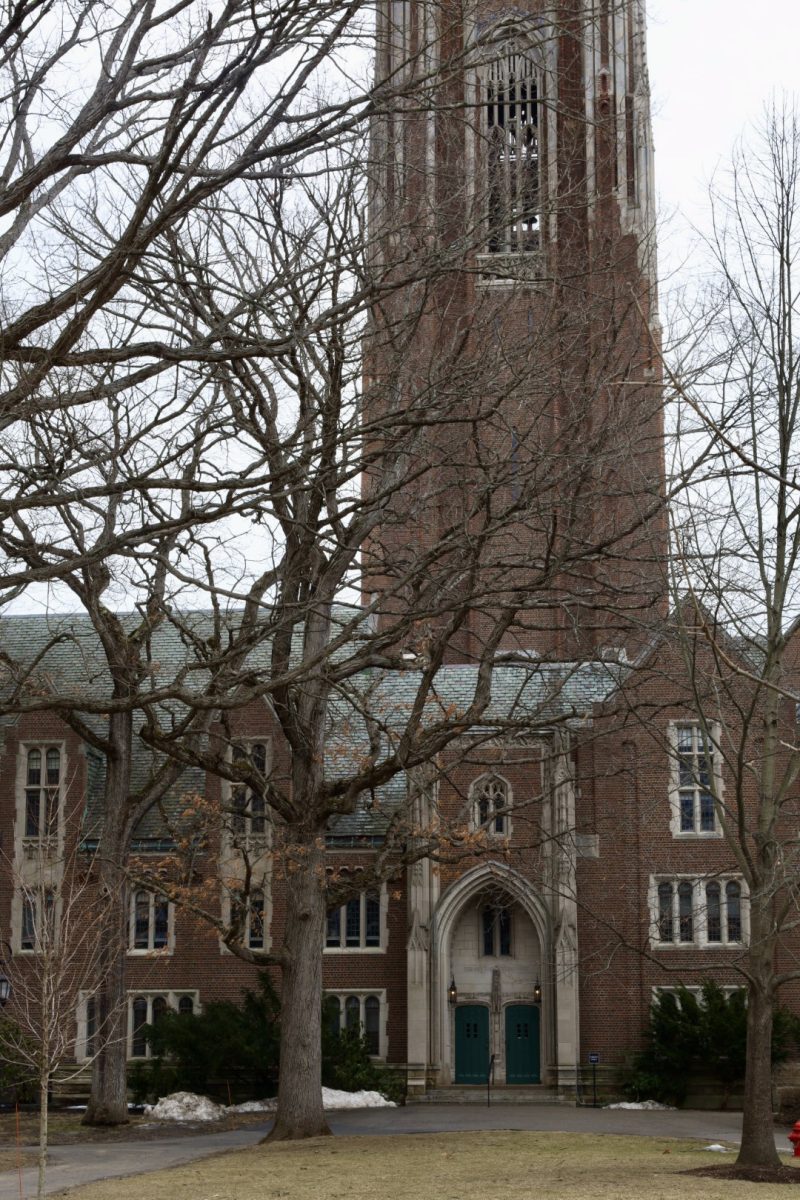Across the world, Wellesley students are packing up their belongings and flying, driving or taking a train back to Wellesley for the hybrid on-campus Fall 2020 semester. Today, Aug. 17, marks the first of six phases of Wellesley College’s on-campus move-in schedule. While schools from Chapman University in California, American University in Washington, D.C., to Smith College and Mount Holyoke College in Western Massachusetts have shuttered their campuses in the past few weeks, as of this writing Wellesley College’s campus will remain open to first-years, sophomores and select upperclassmen who applied to live on campus.
Six-phase move-in plan
Wellesley’s reopening as it stands now remains similar to the plan released on June 30, with some changes to health and safety protocols due to the late-summer spike in COVID-19 infections across the U.S. As of July 24, move-in is spread out over 11 days and consists of six different groups, depending on a student’s class year, leadership role and residency in a high-incidence COVID-19 state. The earliest arrival date is Aug. 17, when new students and student leaders from high-incidence states will arrive at The Verve Boston, a hotel in Natick, while juniors and seniors from low-incidence states will be the last group to arrive on Aug. 28. All students are required to quarantine for two weeks before traveling to campus.
Students from high-incidence states were required to take a self-administered COVID-19 test before traveling to Wellesley and will quarantine for three days at the hotel, during which they must receive two negative COVID-19 test results before moving into their residence hall. Students from all other states will arrive directly to campus and quarantine for about 24 hours in their dorm room. All students will receive a COVID-19 nasal test immediately upon arrival, whether at the hotel or on campus, and will be tested every two to three days for the first two weeks on campus and weekly for the remainder of the semester.
Additionally, the College has also limited those who can enter residence halls to Wellesley students and staff, a reversal from its original decision to allow one parent to assist with move-in. Instead, students were encouraged to ship boxes beforehand, which would be delivered to their rooms prior to arrival.
‘This is people’s lives at stake”
Emma Illidge ’24 is not starting her undergraduate experience the way she imagined.
“Since I’m the oldest kid in my family, with neither of my parents having gone to college in the U.S., I don’t really know how the whole college thing works, let alone going in the middle of a pandemic,” Illidge said. “I’m trying to stay optimistic and I really hope that in time we’ll be able to socialize more, but if that doesn’t happen I’m sure we’ll figure out new ways to do the things we used to while still staying safe!”
Despite her uncertainty, Illidge expects Wellesley’s plan to prevent the transmission of COVID-19 to be successful in keeping students and staff safe on campus.
Christina Kurre ’23, who ultimately decided not to return to campus, was initially expecting the fall semester to begin online with campus only open to those who needed on-campus housing.
“My initial reaction … was shock. I think I was a little disappointed in how Wellesley was handling it and how some people are talking about it,” Kurre said. “I was hoping President Johnson because [of her] public health [background] … would be conscious that this isn’t just a thing where ‘I want to go back to college because I want the college experience.’ This is people’s lives at stake.”
Katie Christoph ’21 shared this sense of disapproval with Wellesley’s reopening plan. She believes the College should have transitioned to remote instruction months earlier due to public health concerns. According to Christoph, the College could have used the money they are spending on COVID-19 precautions to support students’ transition to remote learning, such as providing free WiFi and computers or iPads to students who need it, grants to support students in unstable or unsafe home situations and to continue paying staff.
“I fail to see how Wellesley could send students home in March when infection rates were lower than they are now and bring students, faculty and staff back when the infection rate is higher than ever before,” Christoph said.
“I do not think I can fully be a college student at home”
For many students who chose to return to campus, mental health and in-person classes were the main driving forces in their decision making.
Lilly Wancewicz ’23 has expected to return to campus for Fall 2020 ever since leaving in March. After a difficult online semester, Wancewicz is looking forward to in-person classes and seeing her friends again. For her, the biggest safety concern regarding the fall semester is her flight from the Bay Area to Boston.
“I hope everyone that wants to come back, wants to come back so much that they’re willing to follow all these things to make it work. I do have faith that people will follow the regulations,” Wacewicz said regarding concerns over students following college guidelines. “It’s not if I don’t follow [the rules] I’ll get sick, it’s that you’re endangering other people.”
Anna Smith ’23, an international student from Denmark, was similarly drawn to an in-person semester mainly for academic purposes; the time difference of six hours makes attending synchronous online classes challenging. Smith said she cherishes the community of people she has met at Wellesley, and would be sad to not see any of her friends for a year.
“For me, it has come down to just trusting that the people that are making these administrative decisions know what they’re doing and have done the proper research,” Smith said. “I do also think, however, that it is important to really follow the progression of the pandemic closely and adapt our approach if need be.”
Itzelt Reyes ’23 shared the same trust in Wellelsey administration. She described Wellesley’s hybrid model as “the best case scenario,” which is why she will be returning to campus.
“I do not think I can fully be a college student at home,” Reyes said. “There is not enough space nor is there an ambience that would be conductive toward my learning.”
Both Reyes and incoming students like Illidge express excitement about an in-person fall semester.
“I’ve been so excited about coming to campus since I got accepted in December so I’m thrilled that Wellesley has a plan that allows us to move in this fall! Wellesley’s amazing community was definitely a big reason why I applied to the college in the first place, so that was definitely also a big factor in my decision to come to campus in the fall,” Illidge said. “Once I heard that Wellesley had an extensive plan for the upcoming semester, my mind was made up pretty much immediately.”
First-years and sophomores were initially the only students invited back to campus, while juniors and seniors who wanted to be near campus in the fall were proposed to stay in a nearby hotel, according to an email sent by President Johnson on June 23. However, due to fewer first-years and sophomores returning to campus than originally anticipated, many of the juniors and seniors who applied for on-campus housing were approved. As of now, there are only about 1,200 students returning to campus this fall.
One of these juniors is Sarah Green ’22, who initially did not want to return to Wellesley to stay in satellite housing. However, when Green’s choice became on-campus versus staying home, she determined the benefits of returning to campus outweighed the financial costs.
“Being at Wellesley is just so good for my mental health. Having a social life and a predictable meal schedule … I need some sense of normalcy in some way,” Green said. “It came down to is this amount of money [I have to pay] worth my mental health for me.”
Green also felt safer returning to Massachusetts, where she believed residents took COVID-19 more seriously, than remaining in her home state of Oklahoma.
“I’ve also been thinking about the Wellesley community, the town itself, and how I’m someone from a high-risk place coming to a small town, and that’s just not fair. But there’s no way for everyone to be satisfied and everyone to feel safe,” Green said. “I either feel unsafe at home or relatively safe at Wellesley.”
“One infection is too big of a risk”
When Kurre made her decision on whether or not to return to campus, safety was at the forefront of her mind. Kurre’s main concern does not lie with the College’s on-campus policy itself, but rather how it will be enforced and whether students will follow the rules.
“I fear that I can’t control where people have been, who people have been in contact with … especially with college, no one listens to rules,” Kurre said. “It only takes one moment for COVID-19 [to spread]. It’s very quick and it’s not something you see coming.”
Bridget Lynch ’23 expressed similar worries. Unlike Kurre, Lynch will be taking a gap year instead of studying remotely, as she did not feel like she learned as much last semester when classes went online as she had prior to the switch.
“Obviously I would love to be at Wellesley but I don’t feel super safe doing that right now,” Lynch said. She pointed to rising national COVID-19 cases and other schools’ plans to maintain closed campuses as the factors that swayed her final decision.
Initially, both Kurre and Lynch experienced uncertainty about whether not returning to classes was the right choice, given increased time away from friends and in-person classes. Ultimately, Kurre said it came down to trusting her gut feeling to stay home.
“The quality of my college experience matters more than the quantity of my college experience,” Kurre said. “At the end of the day it doesn’t matter how much time I spent on campus, it matters what I learned, who I met and how I grew myself.”
Lynch will spend her gap year as a park maintenance and development volunteer with AmeriCorps, which will allow her to gain hands-on experience in a profession she is considering pursuing in the future.
“I wish it was almost a little more well known that every student at Wellesley is entitled to two years off,” Lynch said. “Regardless of the pandemic, it’s nice to know that we have that.”
Some Massachusetts students like Christoph, who will be studying remotely, harbor concerns about the impact of a large influx of students returning to the area will have on COVID-19 transmission rates in the state.
“As Wellesley students, we have a civic duty to the community in which we live and work, and the greater Boston area as a whole,” Christoph said. “Even [the potential of] one infection and God forbid even one death, is too big of a risk. I am not willing to let my professors, the custodial staff or dining hall workers die for me.”






